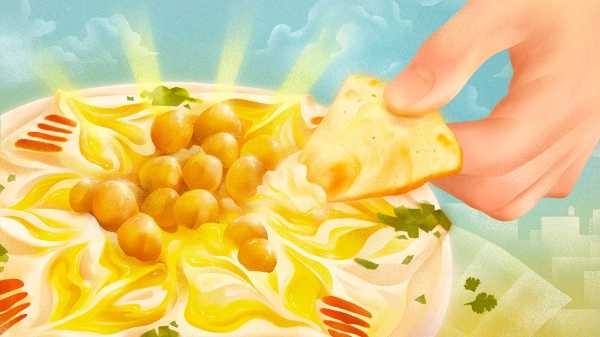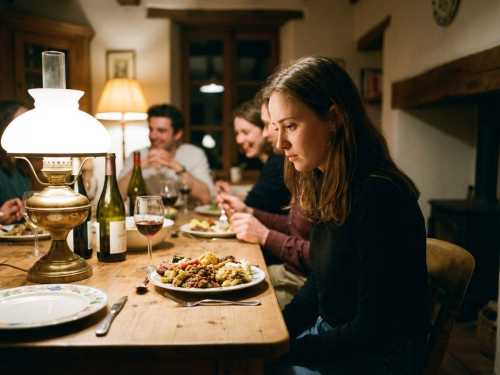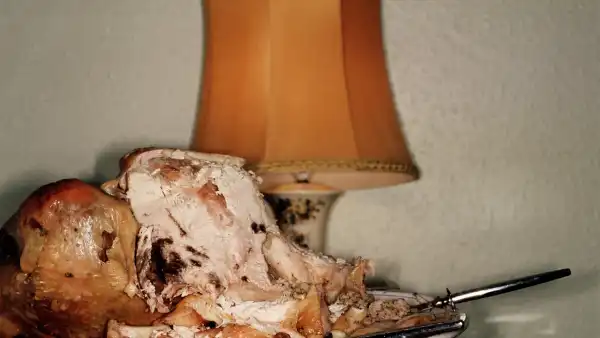
Save this storySave this storySave this storySave this storyYou’re reading the Food Scene newsletter, Helen Rosner’s guide to what, where, and how to eat. Sign up to receive it in your in-box.
At three-thirty on a Tuesday afternoon, in the middle of a rainstorm, in the middle of summer, nearly every table at Al-Basha, a sleek Palestinian restaurant in Paterson, New Jersey, is full. There’s no such thing as the lunch rush or the dinner rush—there’s just the rush, from the moment the doors unlock at noon to when the lights go out at the end of the night. Living in Brooklyn, I have access to a wealth of marvellous Palestinian restaurants: three of the best are al Badawi, on Atlantic Avenue, and Tanoreen and Ayat, in Bay Ridge. But anyone who’s serious about Middle Eastern food knows about Paterson, the city with one of the largest Arab American populations in the nation, with a culinary scene to match; and everyone who knows about Paterson knows about Al-Basha, the best restaurant in town.
Twenty-five years ago, when Yaser Baker opened Al-Basha, it was the first restaurant in Paterson to identify itself specifically as Palestinian, in an area that’s now so dense with Palestinian livelihood that it’s known as Little Ramallah. Baker was born in Ramallah, trained in professional kitchens in Jericho, and spent more than a decade cooking American and Italian food before returning to the cuisine of his heritage. Today, Al-Basha has grown into a trio of storefronts that make up a tiny local empire. The dine-in restaurant, on a quiet commercial block not far from Paterson’s historic Cedar Lawn Cemetery (eternal home of, among others, Vice-President Garret Hobart), was originally situated on a stretch of Main Street that was recently renamed Palestine Way. Two years ago, that space was converted to Al-Basha Quick Serve, dedicated exclusively to takeout orders. On the next block over is Al-Basha Sweets, whose kitchens churn out acres of Arabic pastries for the cases out front and bake mountains of round, golden pita to be shuttled over to the savory restaurants as soon as they emerge from the oven.
Whether you’re dining in or dining out, there are no surprises at Al-Basha. Palestinian cuisine has rich regional variety, but it shares a gastronomic foundation with its Levantine neighbors, Egypt, and the Maghreb. Al-Basha’s menu sticks to the classics: cold mezze and spreads, hot appetizers (often fried), bright salads, grilled and stewed meats served with rice. The hummus at Al-Basha isn’t creative, or unexpected; it’s simply the best hummus I’ve ever, ever had. (The only version that’s come anywhere close is what the chef Michael Solomonov serves at his restaurants in Philadelphia and New York.) The first time I tried it, years ago, spooned out of a takeout container at my in-laws’ kitchen table, I did a double take: This is hummus? Hummus can be this good? It’s satiny, almost weightless, as rich as buttercream and nearly as pale. Scooped up with a piece of Al-Basha’s fresh pita—cloudlike, a pillow of flour and steam shot through with salt—it is scored in my memory, one of the great bites of my life.
You could stop there in your Al-Basha experience—that bite, nothing else—and the trip would be entirely worth it. The misery of northern New Jersey traffic, the hassle of public transit, or the annoyance of finding parking—all of it fades away against the pure pleasure of good bread and that glorious hummus. (The trip isn’t so bad, really; the 190 bus—the Paterson local—runs from Port Authority almost exactly to Al-Basha Quick Serve’s door.) But, as long as you’re there, you might as well keep going. Try the muhammara, a brick-red spread of tomato paste and ground walnuts that’s sweet-sour from pomegranate molasses and heady with cumin. Bakdunsiah, a spring-green purée of parsley and tahini sliced through with a sharp note of lemon, has a thinner, more sauce-like texture; it’s a treat drizzled on a tender kibbeh (a spindle of spiced bulgur, stuffed with ground meat studded with almonds, and deep-fried).
After years as a regular and enthusiastic Al-Basha takeout customer, I embarked on my maiden dine-in voyage last month. Racing through the rain to the restaurant’s heavy doors, I felt a first-day-of-school sense of giddiness. The packed dining room that greeted me seemed like a sign that things were about to go terribly right—which they mostly did. The pita: perfection. The hummus: glorious. (I asked Wassim Henawi, the restaurant’s general manager, what the secret is. “It’s made from chickpeas, and love,” he said, protectively. “There’s nothing else I can share.”) The main courses, a selection of mashawi (grilled meats), arrive at the table looking like something out of a still-life flaunting the pleasures of abundance: kofte and tiny lamb chops and slices of beef shawarma heaped atop sheets of markook (a chewy, silk-thin flatbread that outside of Palestine is called shrak), delivered not on platters but on planks of glossy wood, alongside jewellike grilled tomatoes and peppers and piles of sliced purple onion dressed in parsley.
Meals like these are meant to be lingered over, with as many people as possible. Crowd around the table, nibble on a few pickles, dabble among the spreads and purées, have a bite of arayes (fried pita filled with spiced beef) and a crisp-tender falafel or two. A bit of tomato-and-cucumber salad to brighten the palate, or some parsley-heavy tabouleh, before succumbing to the magnificence of the meat, and eventually chasing the whole meal with a cup of coffee or tea. Given the unhurried conviviality of such an experience, the sense of considered leisure, Al-Basha’s shortcomings felt like endearingly human foibles: the lack of tap water (individual-size plastic bottles dot each table, undermining the room’s otherwise sophisticated aesthetic); the reliably overcooked chicken kebab; the fact that some diners seem to get their frozen mint lemonade in slim highball glasses, whereas others get it in plastic to-go cups with a lid. At least the plastic cups bear the excellent red-and-black Al-Basha logo: the basha, or chief, himself, a lushly mustachioed man wearing a suit jacket and a snazzy tarboosh.
Neither the dine-in nor the takeout operation offers much by way of dessert—a bit of baklava. The better plan is to drop in to Al-Basha Sweets and pick out something wonderful from the pastries on display. The basbousa—a semolina cake bathed in sweet syrup, flavored with endless permutations of nuts and floral attars—is tender and crumbly. The ma’amoul, soft cookies filled with orange-blossom-scented dates, are an ideal balance of delicate and dense. There are baklava varieties galore, some more exemplary than others: the classics, layered with pistachio or crushed walnuts, are sticky-crisp in exactly the right way. But, when I last visited, the counterman urged me to try a style of baklava that he said the bakers at Al-Basha had developed themselves; it incorporated chocolate between the layers of phyllo, weighing down the texture and muddying the flavor. Too much, perhaps, of too many good things. The nonnegotiable item is a slice of knafeh, the famous dessert of the city of Nablus, in which sweet cheese is sandwiched between layers of threadlike kataifi, or shredded phyllo dough, baked on enormous round platters, and then drenched in sweet syrup and dressed with crushed pistachios. (The bakery also makes a less common na’ameh variety, which employs soft semolina in place of the flaky kataifi.) The room at Al-Basha Sweets features bright overhead lights, laminate café tables, and a half-empty drinks fridge stocked with cans of soda and pouches of Kool-Aid. Who needs Instagrammability or decorative charm when the knafeh is a miracle of crunch and softness? As at many Arabic bakeries, orders at Al-Basha Sweets are placed onto small Styrofoam trays and sealed generously with plastic wrap. The trays fit perfectly into the paper bags that Al-Basha offers for packing up the inevitable leftovers from your dinner. If you’re smart, you’ve asked for an extra order of hummus, to bring the happiness home with you, and enough pita to extend its quiet perfection as far as it will go. ♦
Sourse: newyorker.com






